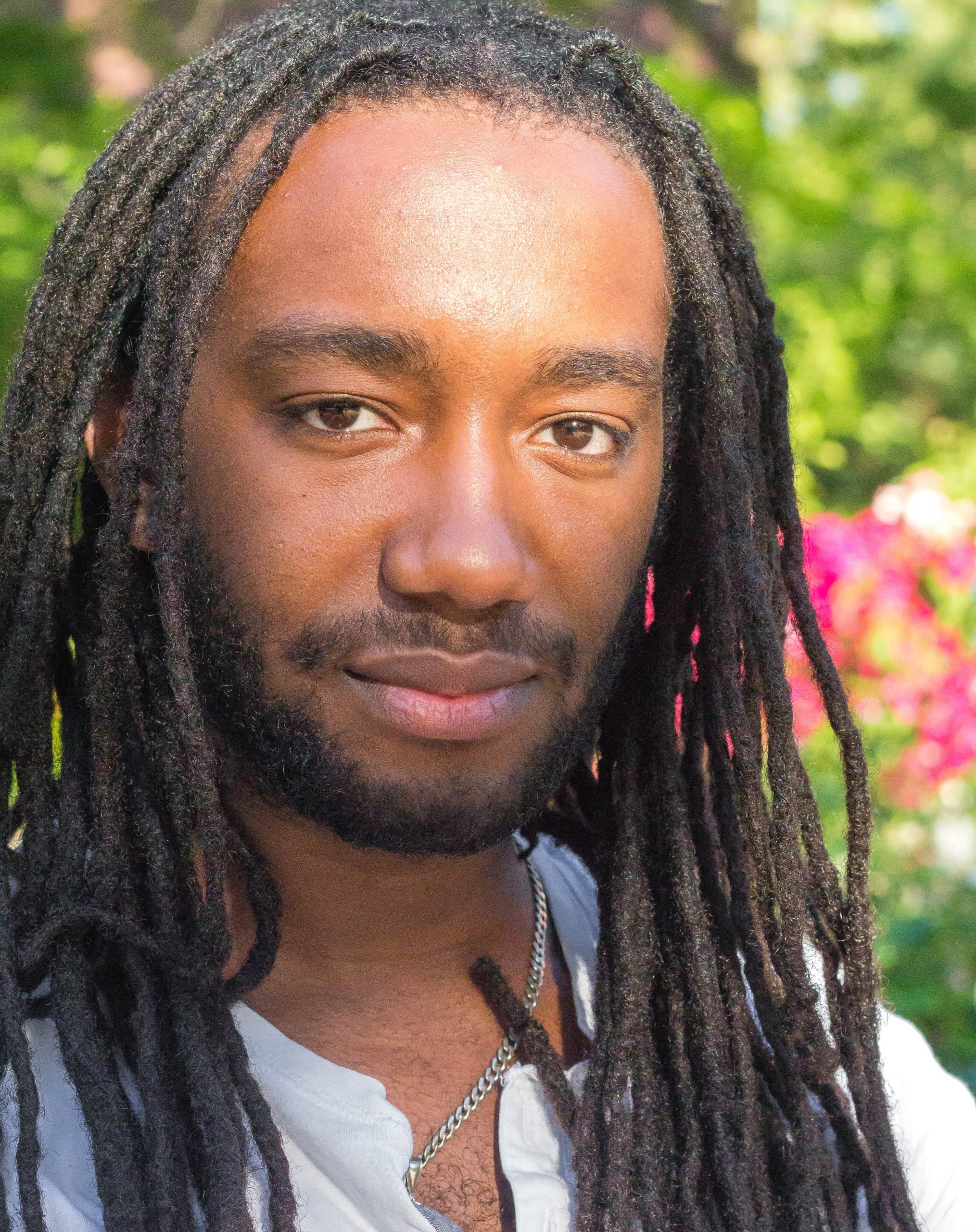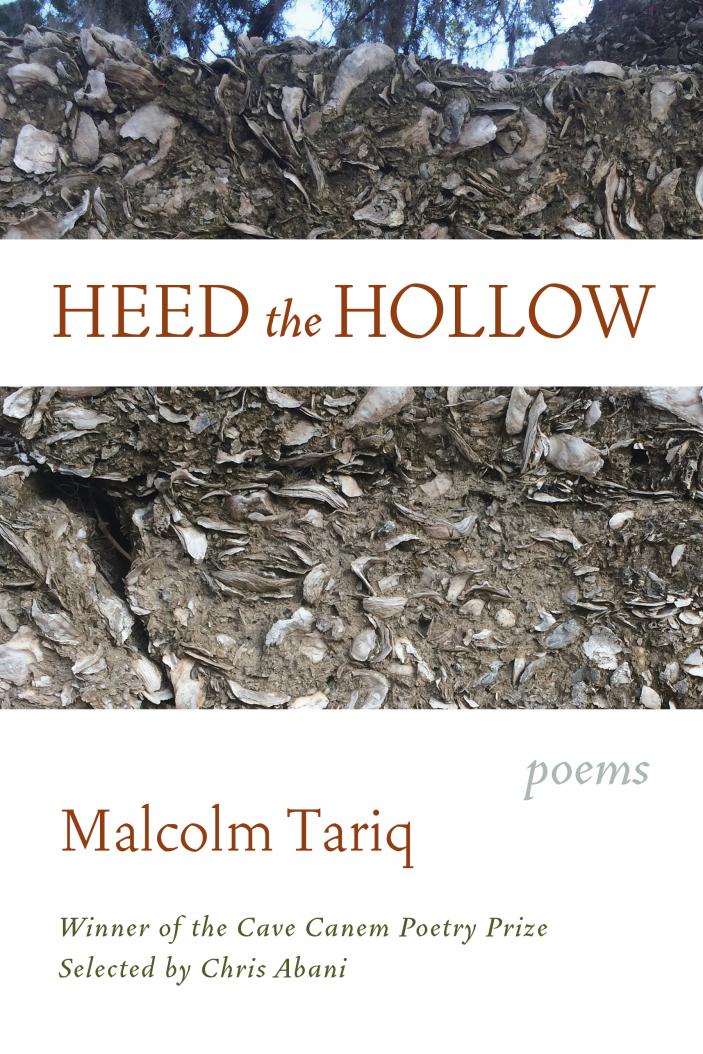I wanted to craft a cento made from lines of slave narratives.
A cento is a poem composed from the lines of other poems.
The slave narrative is an account of bondage as told by the enslaved or the formerly enslaved.
The enslaved and the formerly enslaved, in this case, are those generations of Africans and their descendants subjected to unpaid labor, physical abuse, mental abuse, sexual abuse and exploitation, and socioeconomic disenfranchisement in the Americas.
I am of the descendants of these descendants.
I am not one of the formerly enslaved.
The slave narrative is not a poem.
I wanted to write a cento in which slave narratives centered my experience of being Southern, black, and queer.
I wanted to write a cento in which slave narratives could speak toward my marginal intersecting identities within the South in a way that drew attention to the silences surrounding black life historically that have continued to echo throughout the past two centuries.
The cento creates new meaning.
The slave narrative means that the enslaved and the formerly enslaved recounted their lives from their perspective.
Much of slavery meant denying the enslaved and the formerly enslaved their humanity.
We give narrative to experience every day. Being born and living lawfully in my humanness, I live a reality denied to the enslaved and the formerly enslaved.
Some slave narratives begin, “I was born.”
Birth signifies life.
The slave narrative signifies life and testimony. It assumes the lyric position, an act of selfhood and self-possession, upon establishment of the narrative.
In this case, the narrative precedes the lyric.
Being born male and free, I cannot change the meaning of the possessed to fashion a lyric of my own.
This is a matter of ethics. It is a matter of unmaking meaning.
Much of what we know about the lives and times of the enslaved and the formerly enslaved is through a void that is continually being pieced together.
The slave narrative is meant to contribute to closing that void.
Most slave narratives were collected after slavery was officially unlawful.
Many people still did not see the formerly enslaved as people after slavery became unlawful.
This is a true statement: the institution of slavery made the country of the United States into the nation that it is.
This is a true statement: the enslaved and the formerly enslaved built a nation that continued to deny the fact that they were human and not property.
In this case, the slave narrative is a personal account given in spite of the formerly enslaved being denied their humanity.
In this case, the formerly enslaved were continually denied their human right to assume the position of the lyric.
The cento fragments the void, almost already makes the narrative removed, dispossessed again. This is a form of reckoning.
This reverses the meaning of the slave narrative.
The narrative is a device of authority, control.
It is not unlawful to take someone else’s voice who had little to no voice preceding their narrative authority.
It is, however, unethical to take someone else’s voice who had little to no voice preceding their narrative authority.
This is a matter of ethics.
This is a matter of power.
Some of you reading this have no such ethics, probably because you have a certain amount of power.
In this case, there is power in poetry.
If that is the case, there is power held over and against poetry.
Most of the enslaved were forbidden to learn to read and write.
In this case, the enslaved were forbidden the right to poetry.
Some of the enslaved learned to read and write. Some of the enslaved learned to read and write poetry. In this case, some mastered the lyric in spite of the ways of capitalism.
Again, the lyric is an act of selfhood and self-possession. It should precede narrative.
Again, I must inform you that the enslaved were not considered people socially, politically, economically, or even in the wildest imagination of whites.
The enslaved, the black enslaved, were considered property. They were considered stock.
In this case, could the enslaved fashion the lyric in spite of their subaltern subject position?
Some people are still surprised the enslaved crafted formal lyric in the same way some people are surprised people like me can articulate both word and meaning.
When I say people like me, I mean those descendants of the formerly enslaved.
Again, most slaves were forbidden to learn to read and write.
Some people think it is impossible for me to learn about my ancestors, the enslaved, in spite of—.
We, descendants of the enslaved, have learned to make meaning in spite of—.
Some of you are lost in the poem. This is one form of meaning, meaning I meant for that to happen.
Some of you who are lost know what it’s like to be kept out of meaning making.
This is the part where you make your own meaning, ethically.
Some of us can only say what we cannot write.
This is one form of narrative.
This is one form of lyricism.
This is one form of poetry.
If poetry is not testimony, then what is?
If poetry is not a record of the impossible, then what is it?
Sometimes narrative is all we have.
Sometimes narrative is all we are given.





